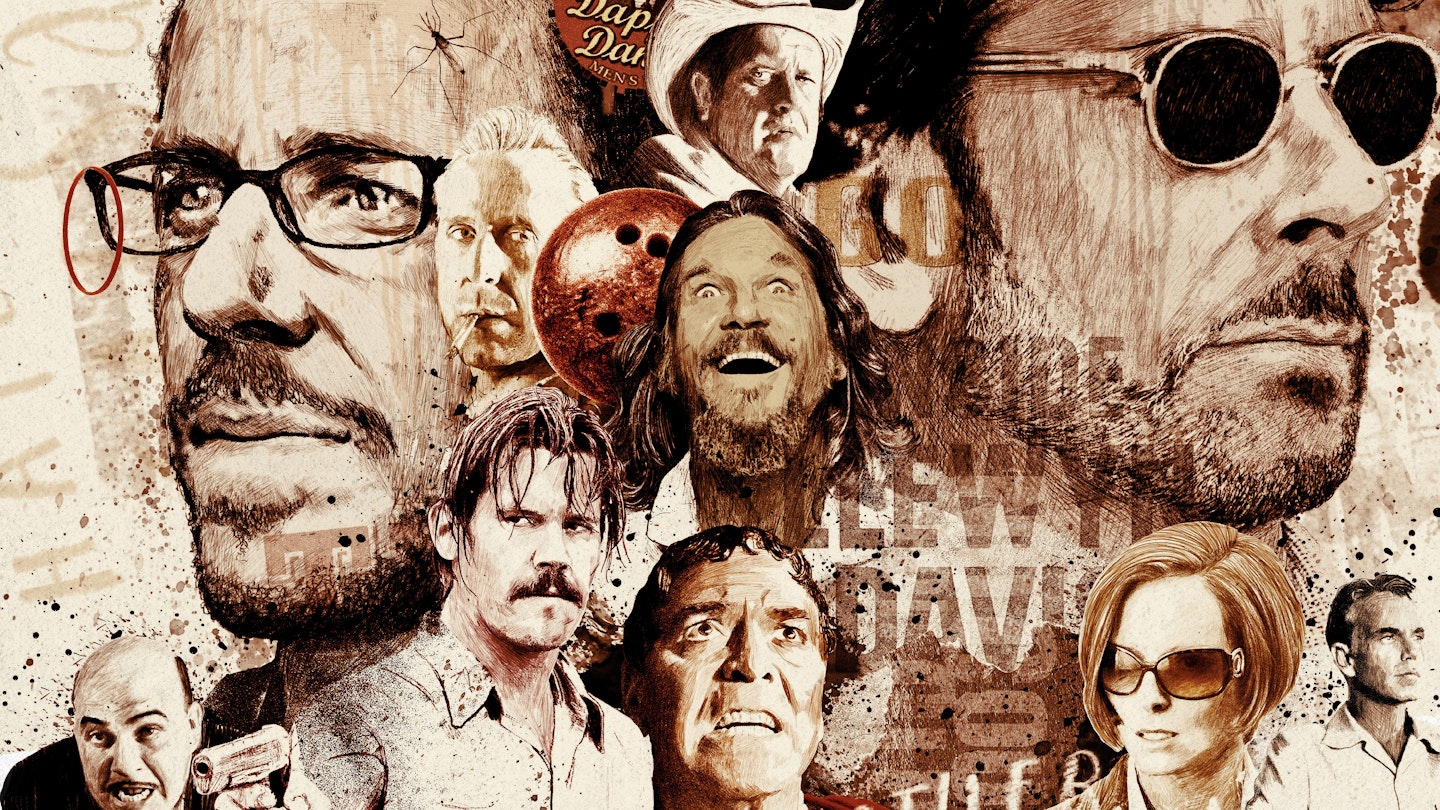This article first appeared in Empire magazine, issue #321, March 2016.
Fifteen years ago, not long after they’d worked together for the first time on Homeric bluegrass jaunt O Brother, Where Art Thou?, Joel and Ethan Coen brought George Clooney a pitch. It consisted of a title — Hail, Caesar! — a vague premise and a single line. Clooney would play an actor who gets kidnapped, and an aww-shucks cowboy character would say, “this is bad for movie stars everywhere.”
“That was it!” an incredulous Clooney tells Empire. “They were just howling with laughter about it. So when I was doing press for O Brother, I was saying we were doing Hail, Caesar! next, even though they hadn’t written it. Then I said the same after Intolerable Cruelty (2003). Then Joel called me up about 18 months ago and said, ‘y’know, you’ve been telling everybody we’re doing Hail, Caesar! for so long, we had to write the sonuvabitch!’ They wrote it and sent it over and it was just exactly what you’d imagine.”
But given the brothers’ eclectic output, what should we imagine? Their last movie, Inside Llewyn Davis (2013), was a melancholy, circular saunter around the ’60s New York folk scene. The one before, True Grit (2010), was a sort-of (but not really) remake of a John Wayne Western. So it of course makes sense that Hail, Caesar! should be a ’50s Hollywood-set kidnap caper which revolves around the making of a Biblical epic and features lavish song-and-dance numbers.
They just have an intrinsic understanding of how to structure a story perfectly.
Because this is the Coenverse, which, since its Big Bang 32 years ago with Blood Simple has seen the siblings segue from deadpan crime thrillers to screwball comedies via oddball dramas, almost-musicals and even something approaching a mainstream romcom. They are, it seems, a law unto themselves, dancing to their own tunes and answerable to nobody but each other. But don’t mistake any of this for randomness. There is, insist the actors who most regularly inhabit their worlds, order here. The Coens abide by their own rules...
1. Cast smart
“It’s like what Lenin said... You look for the person who will benefit..." – The Dude, The Big Lebowski
From Blood Simple onwards, Joel and Ethan keep circling back to the same actors, and exhibit impeccable taste while doing so. They certainly have their favourites, and often write parts with a particular performer in mind. Clooney was brought 2000’s O Brother, Where Art Thou?, and Jeff Bridges was the first and only choice for The Big Lebowski’s (1998) shambolic Dude. “I met them in a bagel shop and they told me they were writing a script for me,” Bridges tells us. “I guess I’ve got some aspects of the Dude that shine through!”
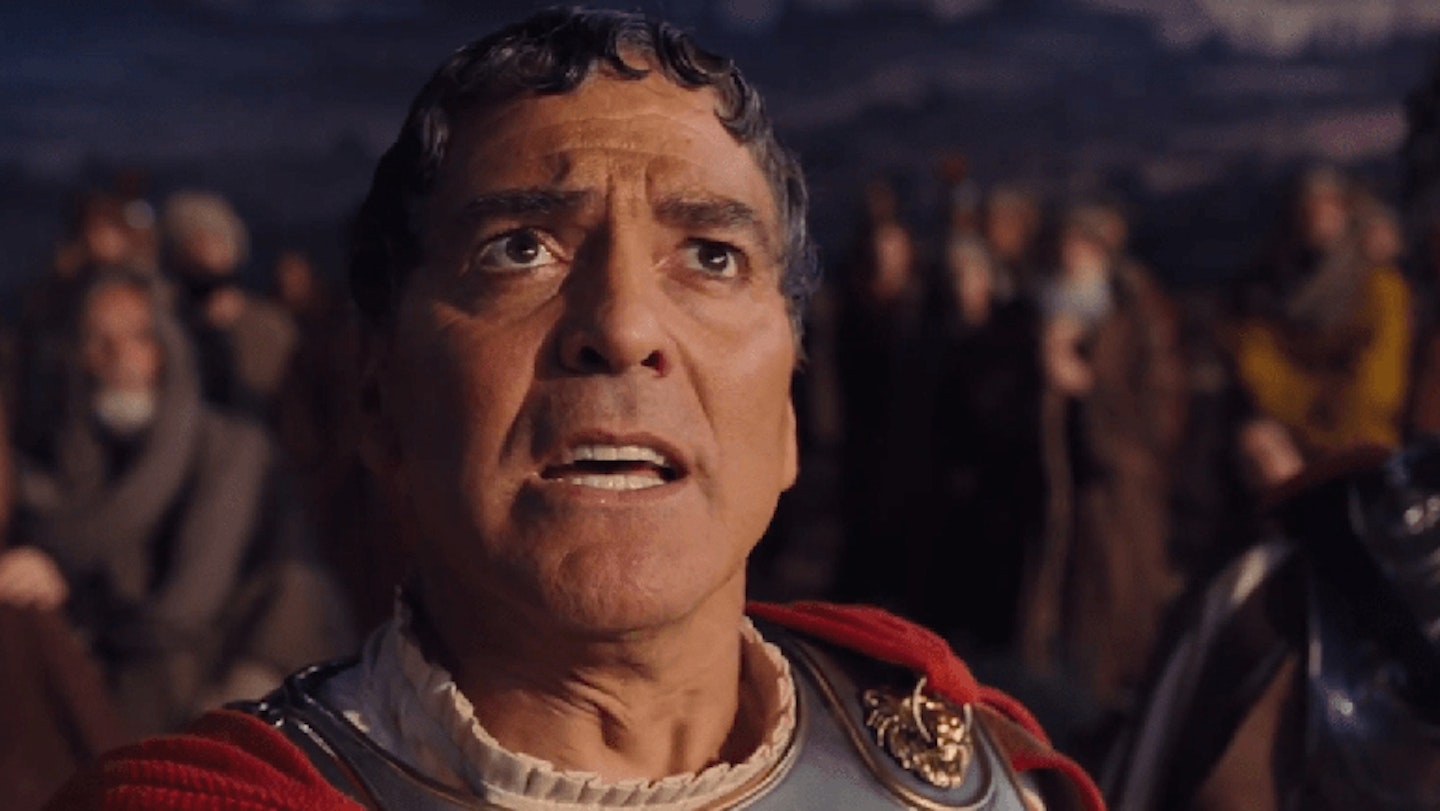
So certain are they of their choices, they rarely demand auditions. Only Josh Brolin recalls being made to do so. Now an established part of the Coens’ unofficial rep company, making his third feature appearance for them as Hail, Caesar!’s studio fixer Eddie Mannix, he says the experience of trying out for Llewelyn Moss in No Country For Old Men (2007) at a time when he had “no value” was so bad that he was sure he didn’t have the part. “Joel just stared at me the whole time,” he laughs now. “I don’t think he said five words.”
What makes them able to attract exactly the casts they want is the quality and meticulousness of their writing. Their screenplays are, says Tilda Swinton, “like reading the annotations of a film you can imagine completely clearly as if you’ve already seen it: utterly precise and rhythmic and full of life and detail and different voices.”
Jon Polito, who’s been cast no fewer than five times by the Coens, recalls that reading Miller's Crossing (1990) was “like reading music. The dialogue flowed like a symphony. There is no comparison to other screenplays. They create scripts that are a joy to read and a challenge to live up to as an actor.”
2. Stick to the script
“Have you got a better idea?” – Moses the Clock Man, The Hudsucker Proxy
The brothers have yet to reveal what their writing process is; it’s never been something they’ve felt the need to discuss in any detail. Brolin recounts them laughing at him for reading Robert McKee’s screenwriting bible, Story.
“I said, ‘Well, what do you do? You never say anything! Tell me how you write a script!’ Ethan goes, ‘okay, you want to know what we do? We sit down and think what would be a cool scene. And then we write that. Then we think what would be cool to see after that, and then we write that scene, and eventually we have a movie.’ That sounds like bullshit to me. They just have an intrinsic understanding of how to structure a story perfectly. And based on that, they can act as if they’re just going, ‘What would be cool next?’”
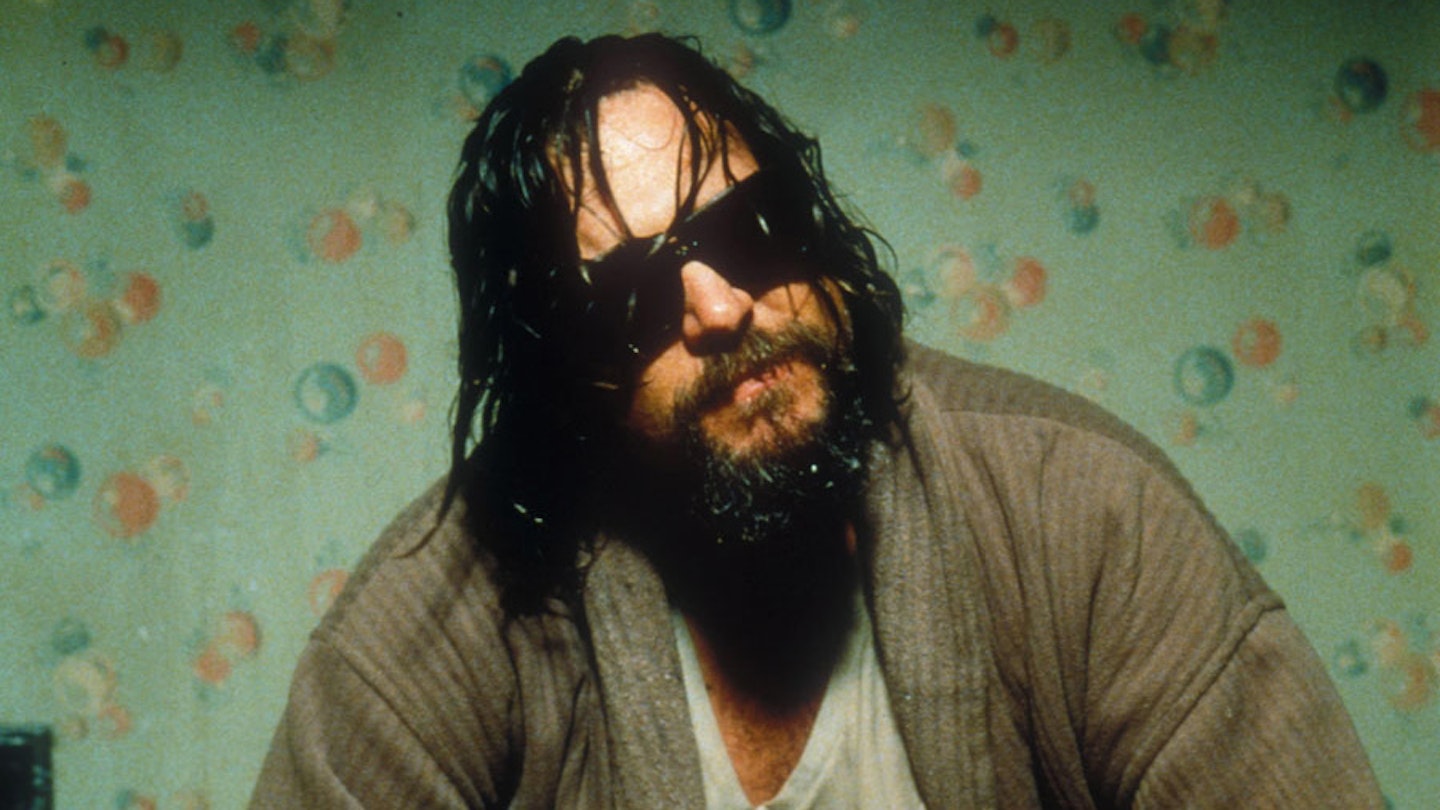
Clooney and Billy Bob Thornton both insist that everything in the script ends up on screen. There are no deleted scenes; the Coens only shoot what they know they’re going to use. And while their loose dialogue may occasionally sound improvised, it very rarely is.
“That’s just a sign of great writing,” says Bridges. “Every ‘fuck’ in The Big Lebowski, every ‘man’ was always in the perfect sweet spot. I was very concerned about putting it right where they had it. You could do it another way but it wouldn’t be as good.”
The dialogue flowed like a symphony. There is no comparison to other screenplays.
This isn’t to say that the Coens aren’t open to suggestions. Thornton asked if he could say, “Heavens to Betsy, Birdy!” in The Man Who Wasn’t There (2001), having heard it in a Snagglepuss cartoon and felt it was something his character might come out with. Permission was granted. Michael Badalucco, in the same film, decided that, since he was being called on to ride a pig called Garibaldi, he should shout the Italian freedom fighter’s famous line, “Domani a Palermo!” (“Tomorrow we take Palermo!”) Again, this was deemed acceptable.
Peter Stormare says the only thing he ever questioned was “Pancakes House” in Fargo (1996). “I said, ‘shouldn’t it be Pancake House?’ And they said, ‘yes, but you always say it plural.’ So that was that.”

3. No yelling, no arguing
“I’m perfectly calm, Dude.” – Walter Sobchak, The Big Lebowski
Given they have everything laid out in such fine detail before production begins, it should come as no surprise that the Coens run a low-key, peaceful and ordered set. “Very relaxed and profoundly systematic at the same time,” is how Swinton puts it. If they ever argue, it’s behind the closed doors of the writing room, so by the time the cameras are rolling they’re entirely on the same page.
Clooney says he’s never seen them irritate one another, or sensed any kind of division of duty. Several of Empire’s interviewees observe that Joel is the more taciturn of the two, while Ethan paces a lot. A few enjoy the brothers’ propensity to laugh loudly and distractingly during a take. “They have this kind of “Yeah... yeah...” thing that they do, like geese honking,” says Clooney. “They kind of hem and haw through it. My favourite thing is, when Ethan comes over to give you a note, you can say very loudly, ‘that’s a much better note than Joel gave me!’”
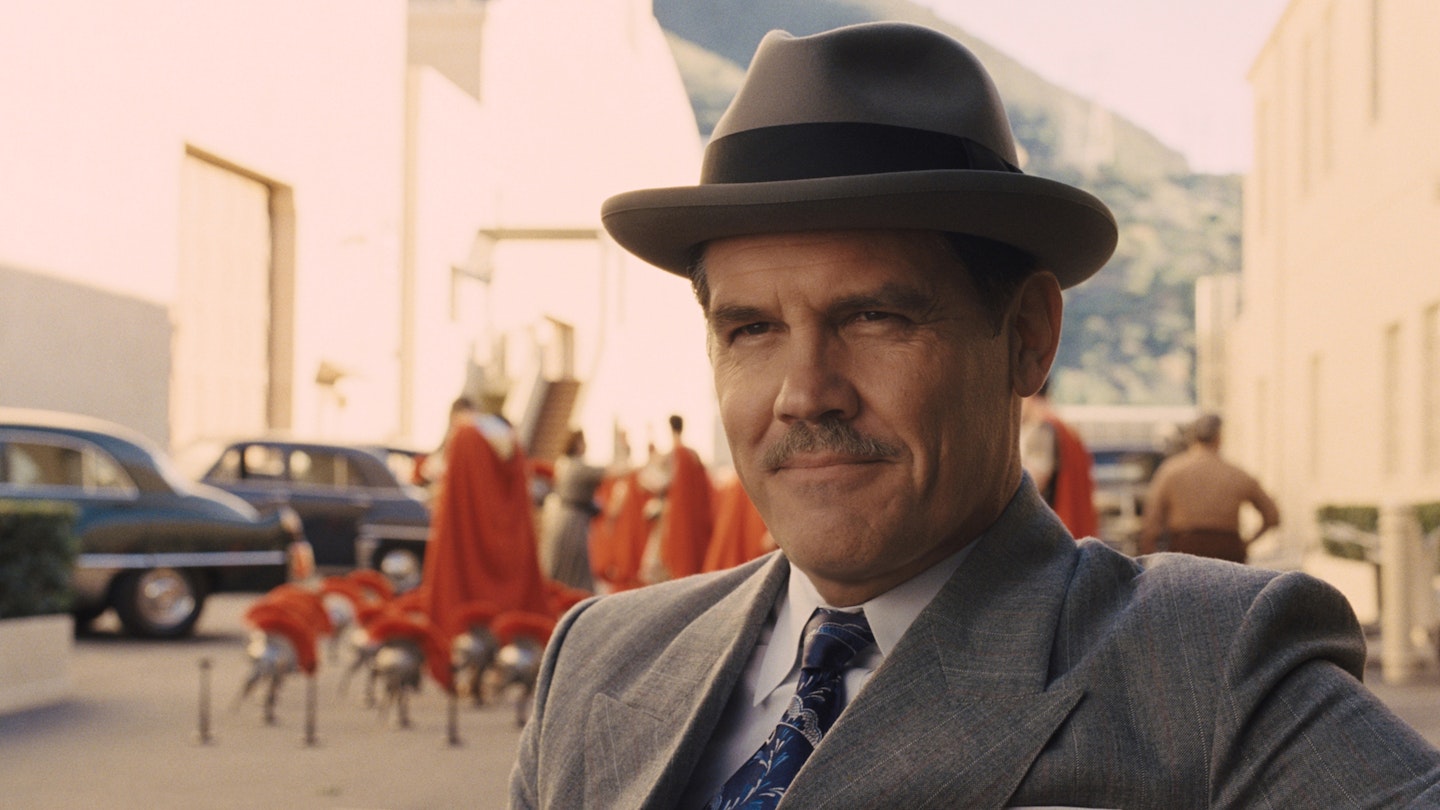
The only difference of opinion between the brothers that Jeff Bridges can recall happened while they were shooting the Dude’s dream sequence for The Big Lebowski. “When the Dude’s hitting the bowling pins with his head, one of the brothers thought I should cringe because the pins hitting me would be painful. The other one was like, ‘Oh, really? I thought it was supposed to be sort of delightful!’ It went back and forth: ‘Cringe!’ ‘Delight!’ So we shot it both ways in the end.”
In the finished film we don’t see the Dude hit the pins at all.
4. Keep it simple
“The more you look, the less you really know.” – Freddy Riedenschneider, The Man Who Wasn’t There
As with the writing, the shooting schedule is worked out to the nth degree. “Most films you’ll do a master shot then a tight two-shot and then an over-the-shoulder and a close-up,” says Clooney, who started directing features himself two years after O Brother. “The Coens are like, ‘We’ll just do the first three lines in this wide shot and a close-up over here,’ and that’s all you shoot. They don’t even give themselves the option of doing something else.”
Occasional on-set problems have engendered peculiar solutions. Insisting that M. Emmett Walsh’s character, sleazy P.I. Loren Visser, blow smoke rings in Blood Simple, the brothers were stymied by his inability to do so. A smoke ring-blowing contraption was sourced, but that didn’t work either. Eventually, says Walsh, “this little Texan prop girl they’d hired just went, ‘Gimme that cigar!’ and she stood right beside the camera, blowing smoke ring after smoke ring. I was like, ‘Wow, this is the way movies are made!’ An hour later or something — we were shooting in this roadhouse in the middle of nowhere outside of Austin — I walked out and there was this little girl sitting on the back porch, puking her heart out. I said, ‘That poor girl! She gave her life to this fucking movie!’”
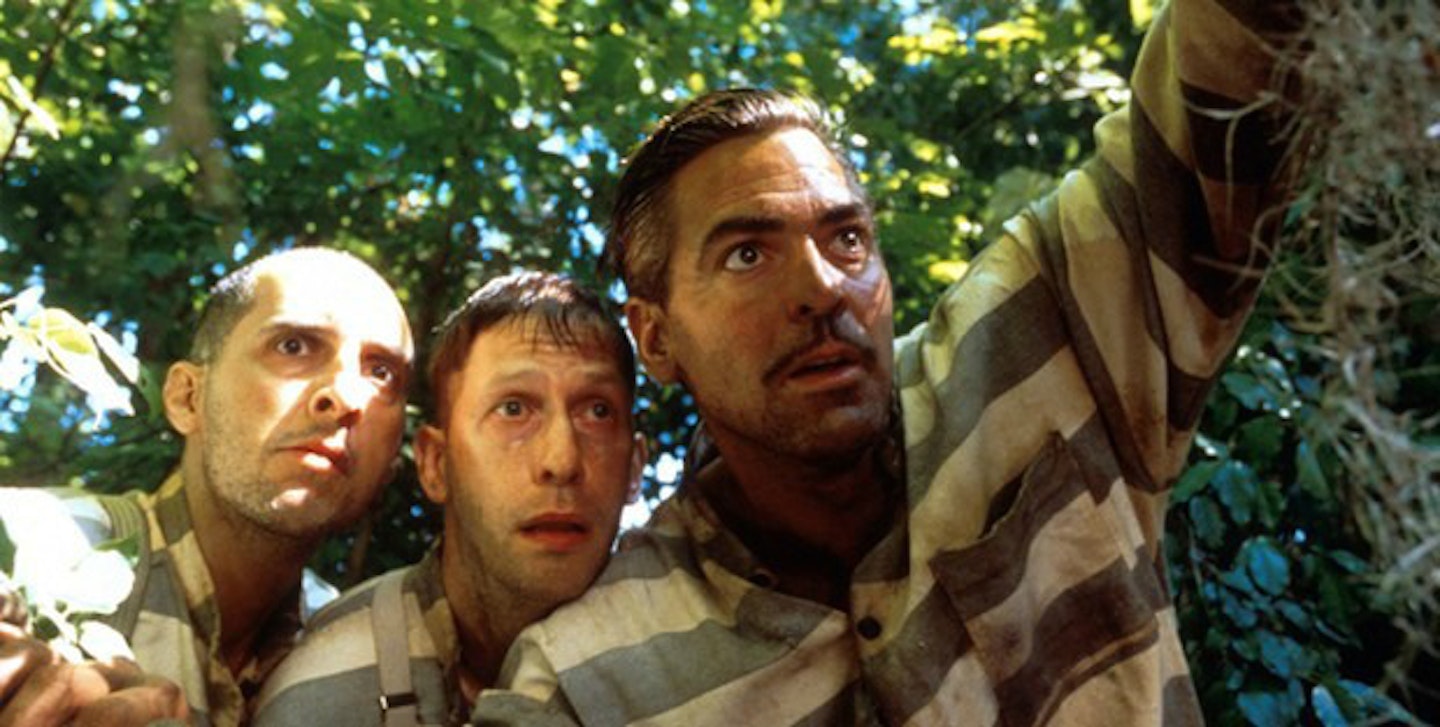
The musical and synchronised swimming sequences in Hail, Caesar! proved somewhat more challenging than smoke rings. Brolin says they made “for an even more laconic day than usual... That’s how you can tell they’re stressed.”
Indeed, it seems the bigger a production becomes, the less at ease Joel and Ethan feel. Their extravagant Capra tribute The Hudsucker Proxy (1994) proved a misfire, something both Thornton and Bridges put down to the budget getting away from the brothers in a way they found uncomfortable. They’ve worked within smaller means ever since in order to keep full creative control.
5: If it ain’t broke...
“I don’t want Fop! I’m a Dapper Dan man!” – Ulysses Everett McGill, O Brother, Where Art Thou?
For all the variety of their output, Joel and Ethan Coen have proven largely resistant to change. “I think Joel cut his hair once,” offers Tilda Swinton, “but it grew back.”
When they made Blood Simple back in 1984, they may have been “two quiet little kids [who’d] never done anything,” as Walsh puts it, but the brutal Texan noir brimmed with such confidence it heralded their arrival as fully formed filmmakers.
“I read the script, and I thought I could do something with my character,” recalls Walsh. “He was kind of a Sydney Greenstreet, and it was funny. I knew that character and I knew what I could do with him. I thought maybe I could work with that, and then go and do another real movie. I didn’t know if they had a movie with Blood Simple or not...”
I think Joel cut his hair once, but it grew back.
As it turned out, they had more than a movie. They had a blueprint for a career. The ingredients are all there: characters farcically failing to achieve their dubious ambitions; extreme violence; deadpan humour; a slightly arch, distancing tone. Its follow-up was another botched-crime yarn (Walsh cameoed as the Machine Shop Ear-Bender who talks about finding a severed head in the road), but Raising Arizona (1987) defied expectations, swapping hard-boiled for slapstick. To a large degree, the Coens have alternated ‘serious’ projects with knockabout runarounds since.
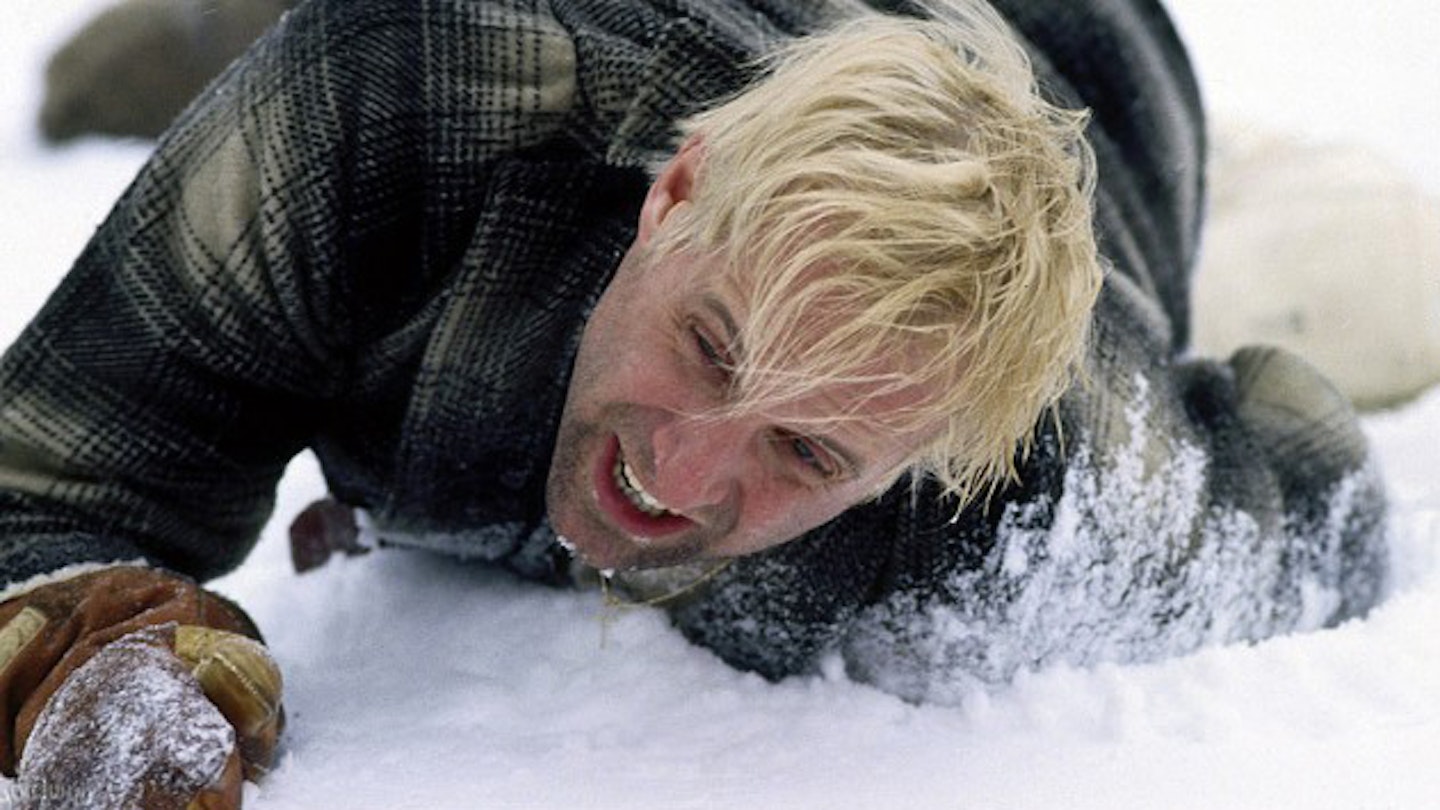
“I’ve only ever done their knockabout ones,” chuckles Clooney. “They always finish a serious one and then I do the next one and everybody goes, ‘Well, it can’t be a serious one...’”
The blueprint hasn’t always yielded success, though, as Hudsucker showed. Flirting closer to the mainstream with Intolerable Cruelty (2003) also proved a stumble. “We expected a standing ovation like we’d had before (for O Brother) at the Venice film festival,” says Clooney, “but when it finished everyone just turned and glared at us. I looked at Catherine Zeta-Jones and said, ‘run!’”
Some critics have been put off by a perceived Kubrickian coldness, a lack of emotion, to their films; J. Hoberman went so far as to describe their style as “artful contempt”. Bridges dismisses that as a product of “where they put the camera. It’s right where it wants to be, and it’s not overblown. Nothing’s over- emphasised.” Others have taken against their obsession with idiots (“there is limited comedy value in characters being just stupid,” wrote The Guardian’s Peter Bradshaw of Burn After Reading in 2008). Idiots who are often played by Clooney...
“They do revel in other people’s idiocy,” he admits. “But listen: what better way to tell a story? Most stories have, at their heart, some sort of idiot that’s caused all the problems. I’ve now done four massive idiots for them. After Burn After Reading I thought I’d completed my idiot trilogy, and then they brought me Hail, Caesar! which is even stupider than the other three. They just love to play with that. They enjoy a useful idiot.”
6. Maintain splendid isolation
“Nobody knows anybody. Not that well.” – Tom Reagan, Miller's Crossing
Clooney says he doesn’t see the brothers often outside work, but when he does, it’s like picking up a conversation exactly where it was left. Thornton, too, says they aren’t particularly close, although he thinks their oddness can be over-stated. “They’re more Frank Zappa than Captain Beefheart,” he believes: more accessibly strange than alienatingly weird.
Joel Coen genuinely loves Flashdance.
Brolin says he has better conversations with Joel, but spends more time with Ethan. “I went out to dinner with Ethan once, just the two of us, and he kept looking down. This was before people were constantly looking at their phones. Finally I said, ‘What are you looking at?’ and I looked under the table and he had a novel open! I was like, ‘What?! Dude, you can do that if there are six people at the table. You can’t do that if there’s only one other person!’ He apologised. I think he felt bad. I have no idea what he was reading. Probably a romance novel.” He insists Joel’s favourite director is “hands-down, Adrian Lyne. That sounds like an affectation but it isn’t. He genuinely loves Flashdance. He loves all of them. I don’t think Ethan’s even seen them.”

Their place these days in Hollywood is that of respected outsiders — except they are insiders, too. “How do they fit in Hollywood? How does Hollywood fit in them?” asks Swinton rhetorically. Steven Spielberg’s Bridge Of Spies boasted a Coens rewrite. Fargo enjoys an afterlife as a critically lauded television series: one that its first-season star Thornton says is absolutely “Coenesque” despite their lack of hands-on involvement. Clooney’s next film as a director, Suburbicon — starring Coens alumni Brolin, Matt Damon and Julianne Moore — is from an unmade Coens script he’s admired for years.
7. Avoid easy definition
“I’m fucked if I know what we did.” – CIA Superior, Burn After Reading
When Empire challenges Clooney to define the word “Coenesque”, he decides it’s “violence and absurdity and dingbats”. Brolin plumps for “unconscious originality” and says they’re “the last of the great absurdists”. Badalucco, meanwhile, insists it’s “idiosyncratic specificity” and for Bridges it’s “seeing the unusual in the usual”. Polito agrees: “I’ve always defined art as ‘the familiar seen through new eyes’, and that’s them!”
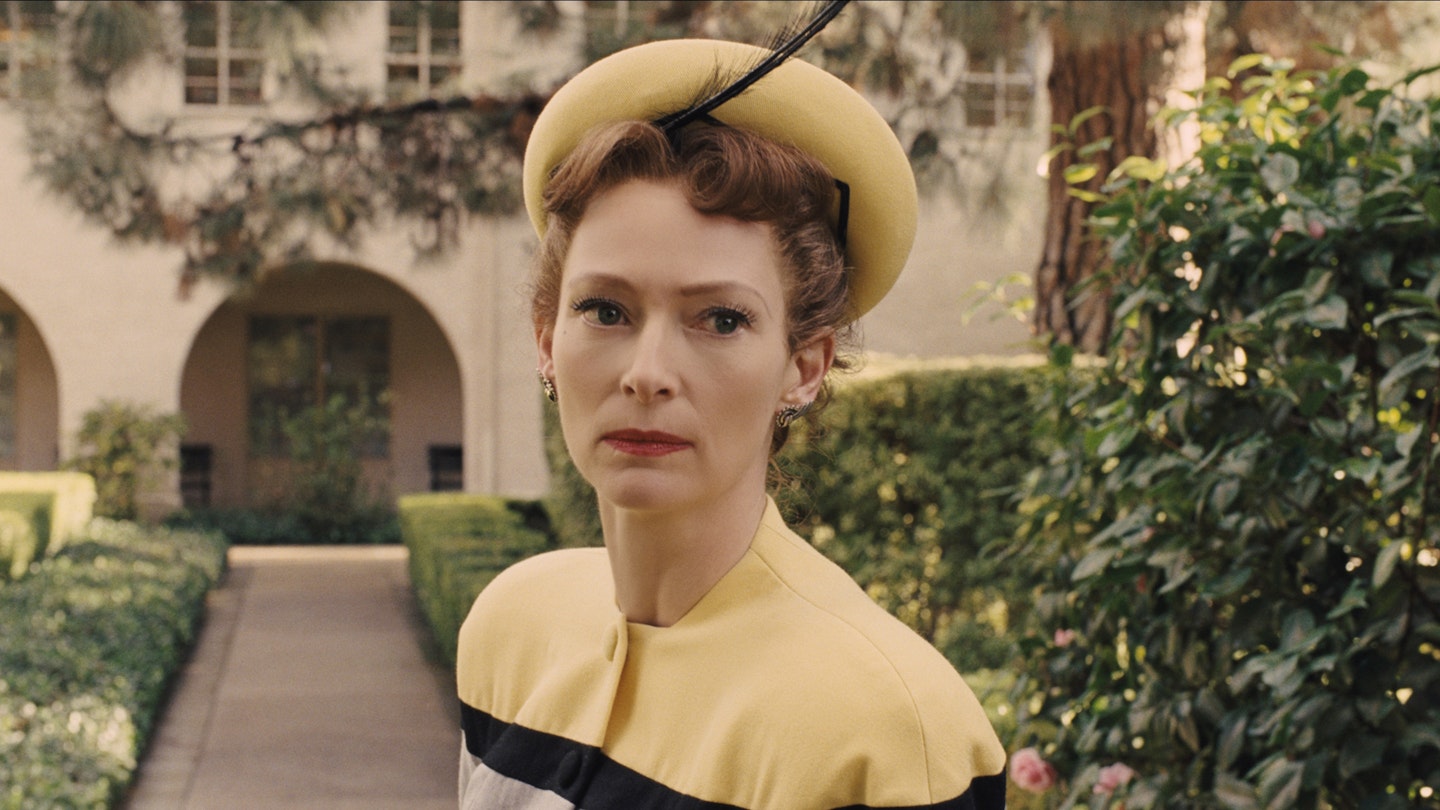
“There’s a sense of humour that’s like a club that certain people belong to that gets the joke,” says Thornton. “They’ve found this feather, and certain people get tickled by it. The Coen brothers are not for everybody, but they probably reach a broader audience than you might expect. So maybe there’s hope for humanity.”
Hail, Caesar! is in cinemas now.
Main illustration by Peter Strain.
